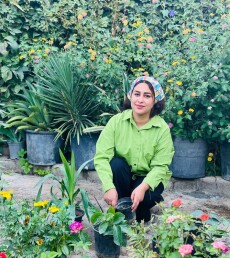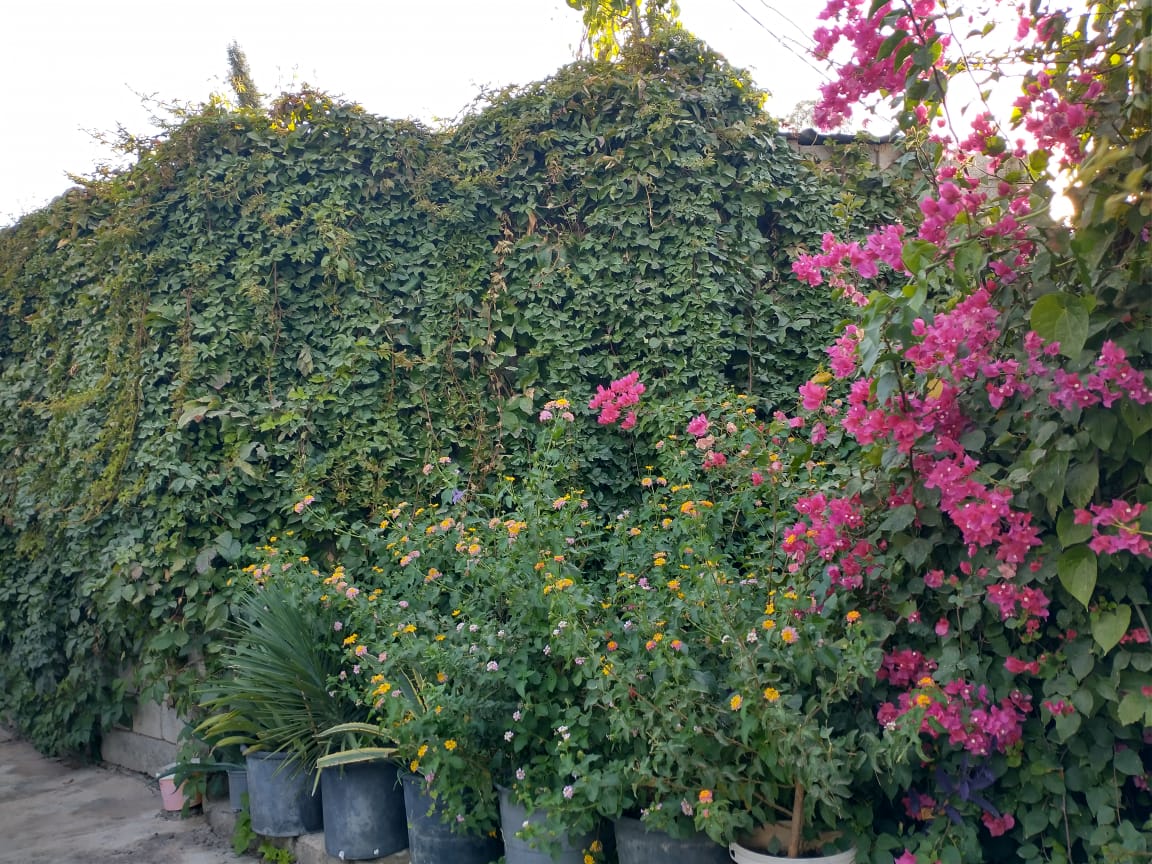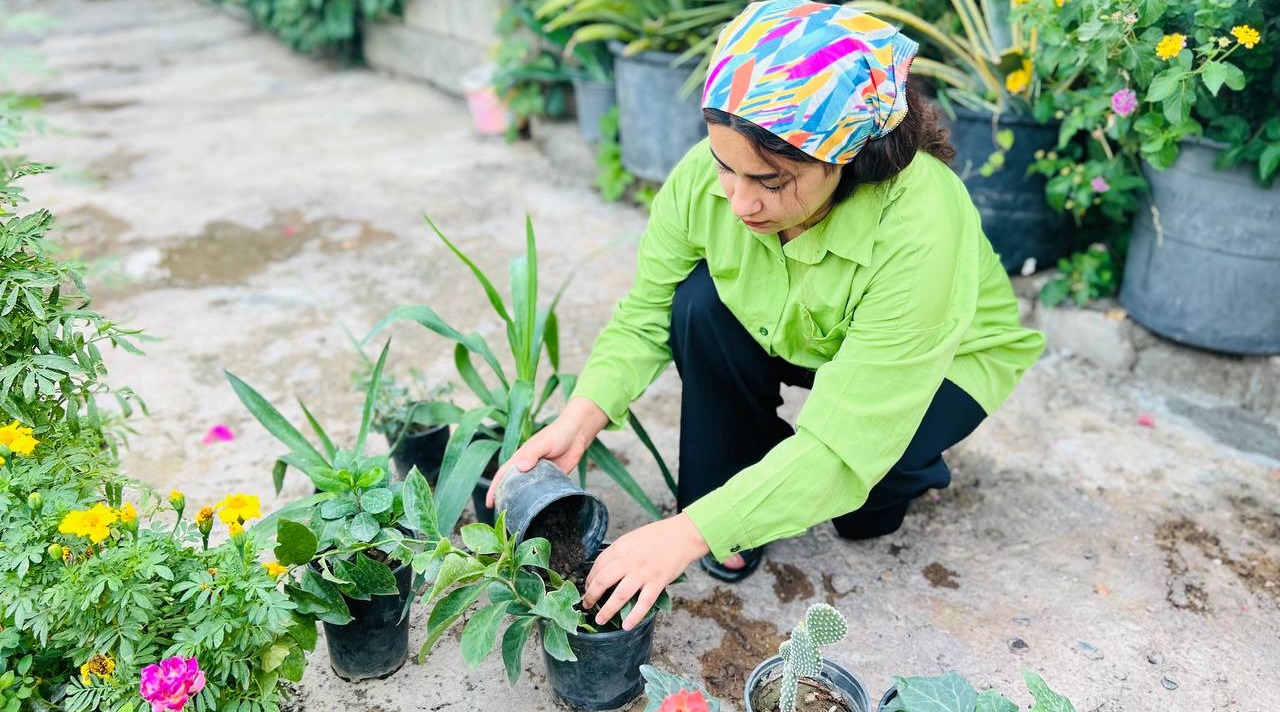
I deal with flowers, so I am a calm personز
By Rozhgar Abdullah

I deal with flowers, so I am a calm personز
By Rozhgar Abdullah
A story she published three years ago on her "Facebook" account changed the way "Rubar Ahmed" thinks and lives, and she decided to turn her passion for caring for flowers into a source of income and a means of purifying the air and environment.
This step was of great importance to her, especially after she stumbled in her studies and started looking for a job opportunity.
The story she published was pictures of different types of flowers that she had grown herself. Rubar says, "After posting couple of stories about my flowers, some ladies asked if they were for sale."
From here, a question came to her mind, why not start selling flowers, so she decided that caring for flowers would not remain just a hobby.
The beginning of the dream
Ahmed (26 years old) lives in the village of Goptapa, which is affiliated with the Agjalar sub-district in the Chamchamal district, east of Sulaymaniyah Northern Province. She studied until the tenth grade of middle school. She started taking care of flowers six years ago, but decided to sell them to customers from different cities and districts three years ago.
"Greenery adds beauty to the house," this was Rubar's first goal in her work. She says, "Flowers give me peace and make me forget the sorrows and difficulties of life."
Rubar resorts to cuttings to propagate flowers. She currently has about 200 different flowers, producing 1000 flowers annually through planting and cuttings. However, her second goal is to expand her project.
“I receive requests from Erbil, Koysanjak, Chamchamal and Sulaymaniyah. Some of them visit my nursery directly and others order flowers through delivery. Most of my customers are women,” she proudly said.
“Some women cannot visit me because of the distance, some of them ask me for instructions on how to take care of the flowers and keep them from drying out," she added.

The village of Goptapa is 70 km northwest of the city of Sulaymaniyah, and is located on one of the roads linking the provinces of Sulaymaniyah and Erbil, so it has a good opportunity to attract customers passing by on this road.
Some women complain about the drying out of the flowers they buy from the nurseries, and Rubar attributes the reason to the fact that they are imported from outside Iraq and some of these flowers are not suitable for the environment and climate of Iraq.
"When I sell flowers, I give instructions to customers on how to take care of them, this makes them very happy."
Challenges facing Rubar
Rubar faces some challenges, including the small size of her nursery and the fact that she does not have a special greenhouse to care for the flowers during the four seasons of the year where temperature is up and down sharply.
The change of seasons forces her to change the location of the flowers.
"If I had a greenhouse or a special room, I wouldn’t have gone to that trouble. Now that winter is approaching, I take care of the flowers inside our house. If I had a large workplace, I would have developed my business.”
Rubar is thinking, in addition to taking care of the flowers, of selling some other supplies related to her work, such as home-made fertilizers, pots, and others.
Rubar does not use chemical fertilizers. “Chemical fertilizers often cause harm to the environment and flowers, as their leaves turn yellow and sometimes dry up,” so Rubar uses livestock waste, rice water, and potato peels as fertilizer.
Looking to expand her project
Rubar intends to set up a greenhouse to take care of the flowers before the end of this year.
After working alone in the nursery, she now receives help from two other women, which is a good indicator of the project’s plans to expand and provide job opportunities for the girls of the village.
Most of the residents of Goptapa village work in agriculture, gardening, and fish farming, and the village enjoys a clean environment.
“The two women who work with me also grow roses in their homes and later bring them to my nursery to sell.”
Rubar starts planting and cutting flowers in January and February, and they are ready for marketing in April and May when demand increases.
The flower business is not profitable at the moment, but Rubar is seeking to increase the profits of the project by expanding it.

“The project does not provide sufficient income, but if we expand it as we plan, we can increase our profits to one million dinars per month,” Rubar adds.
“I want to thank my father and mother for helping me a lot.”
Rubar sells her roses to nurseries wholesale, the price of one seedling is 500 Iraqi dinars IQD (USD0.33), but the prices of individual plants range between 1,000 and 2,000 dinars.
"My work expenses are not much, I just need nylon bags, and I don't buy fertilizers."
Hell rose, garden rose, Zambia, rubber and tiger skin are among the types of flowers and plants that Rubar and her colleagues grow and care for.
"The best-selling is the hell rose, in addition to its beauty, it blooms throughout three seasons and this is good for the environment and purifies the air."
As for the Zambia plant, it is mostly placed in the kitchen because it attracts fats.
"The tiger skin flower is very beneficial from a health perspective, as it increases the oxygen level in the bedroom and purifies the air, and it also needs a small amount of water," Rubar adds.
"I deal with flowers, so I am a calm person, flowers are like children and need care like them, taking care of them makes me happy."